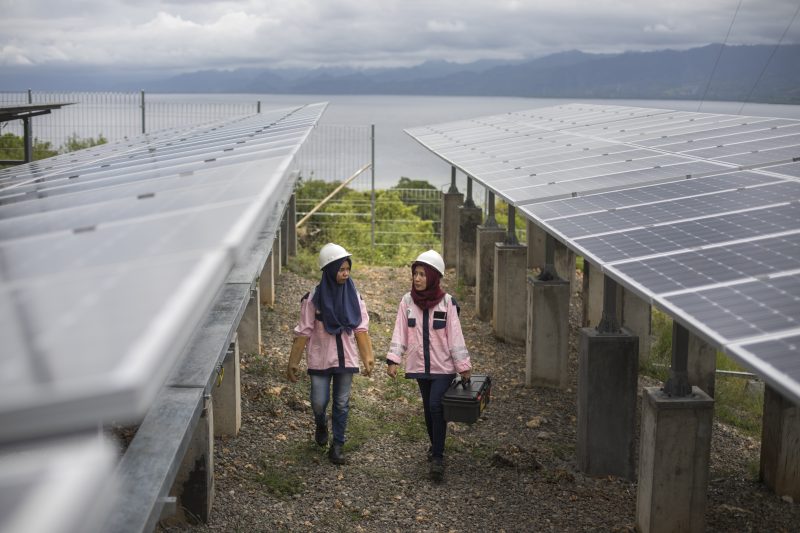
Jake Lyell for MCC
Over the course of my career, moving from Port-au-Prince to Paris and London to Washington, D.C., and many trips across the globe, I have honed in on what is fundamentally important to me. I want to work with people who believe they can make a difference and focus their efforts where they can make the greatest impact—and in a short time I have found that in my new MCC colleagues. My professional interests and convictions as well as my personal values are well-aligned with MCC’s mission and operating model. That is a good thing, because the more time I spend in the development sector, the more impatient I am about the urgency of delivering impact, especially since the arrival of the COVID-19 pandemic.
MCC has a strong and tested model that pairs investments—in the form of large grants—with critical policy and institutional reforms for sustainability, helping to create an environment conducive to private sector-led growth. We have a highly selective approach to identifying the countries we work with to pursue our goal of poverty reduction through economic growth—one that emphasizes good governance and democratic values. Once we identify eligible countries, we place a high premium on working hand in hand with governments, as well as the private sector and civil society organizations, to develop and implement our impactful programs. At the same time, we must continue to evolve to meet the challenges of our time.
The economic fallout from the COVID-19 pandemic is significantly reversing gains made in the developing world and has exacerbated global poverty and inequality. We need robust interventions that promote high quality economic growth—growth that is sustainable, inclusive, and job-rich. MCC is well-positioned to play an important role in supporting countries' efforts to build back better while also enhancing their resilience to future crises.
Looking ahead, I see three strategic priorities for MCC that will shape our approach in the years to come.
First, MCC has an opportunity to boost climate-smart investments that will help partner countries meet one of the defining issues of our time. MCC has been an early leader in fighting climate change in developing countries, investing more than $1.5 billion—38 percent of our compact funding—in the past five years alone to integrate adaptation, mitigation, and climate resilience into our work, but we can do more. MCC is drafting a new agency-wide Climate Strategy that will be released alongside the April Leaders Summit on Climate. This ambitious new strategy will expand and deepen our climate commitment across our portfolio, investing in climate-smart development and sustainable infrastructure. We are looking to integrate climate and environmental considerations in all of our work, starting with our analytical tools—such as constraints to growth and cost benefit analyses—that inform investment decisions, and then on through our project design, implementation, and evaluation.
Second, we are eager to contribute to growth that benefits all segments of society. MCC will therefore pay increased attention to inclusion and gender. We will work to expand our economic models and diagnostic tools to improve the distributional impact of projects and ensure pro-poor approaches are incorporated within MCC programs. We will also build on the excellent work MCC has done in recent years to boost the economic empowerment of women in our programs. Including women as full participants in our efforts to deliver growth is not just a moral imperative, it clearly leads to outsized benefits for families, and I believe we can do even more.
Third, development agencies like MCC must actively engage with the private sector and other USG development agencies. Even before the emergence of COVID-19, there was an enormous gap between the amount for aid required for the world to meet the Sustainable Development Goals and the amount of government funding for development assistance.
The challenges we face in the development community are daunting and no one actor can do it alone. There is renewed opportunity in the coming years to enhance our partnerships to further leverage MCC’s precious grant dollars to connect with other parts of the development system, both within the United States, with DFC and USAID, as well as with the multilateral development banks and the development finance institutions of our international partners.
Collective action with each actor leveraging their respective strengths is the only way to get the job done. For MCC, that means combining a modern approach based on true partnership with what I call “high quality” money—large, predictable, multi-year grants—to invest in key physical and social infrastructure paired with policy and institutional reforms that boost good governance and create an enabling environment for private sector investment.
By leaning on the strengths of our model, and evolving to meet new challenges as they emerge, MCC is poised to play a distinct and important role in the global effort to support countries shape a better future for themselves.

